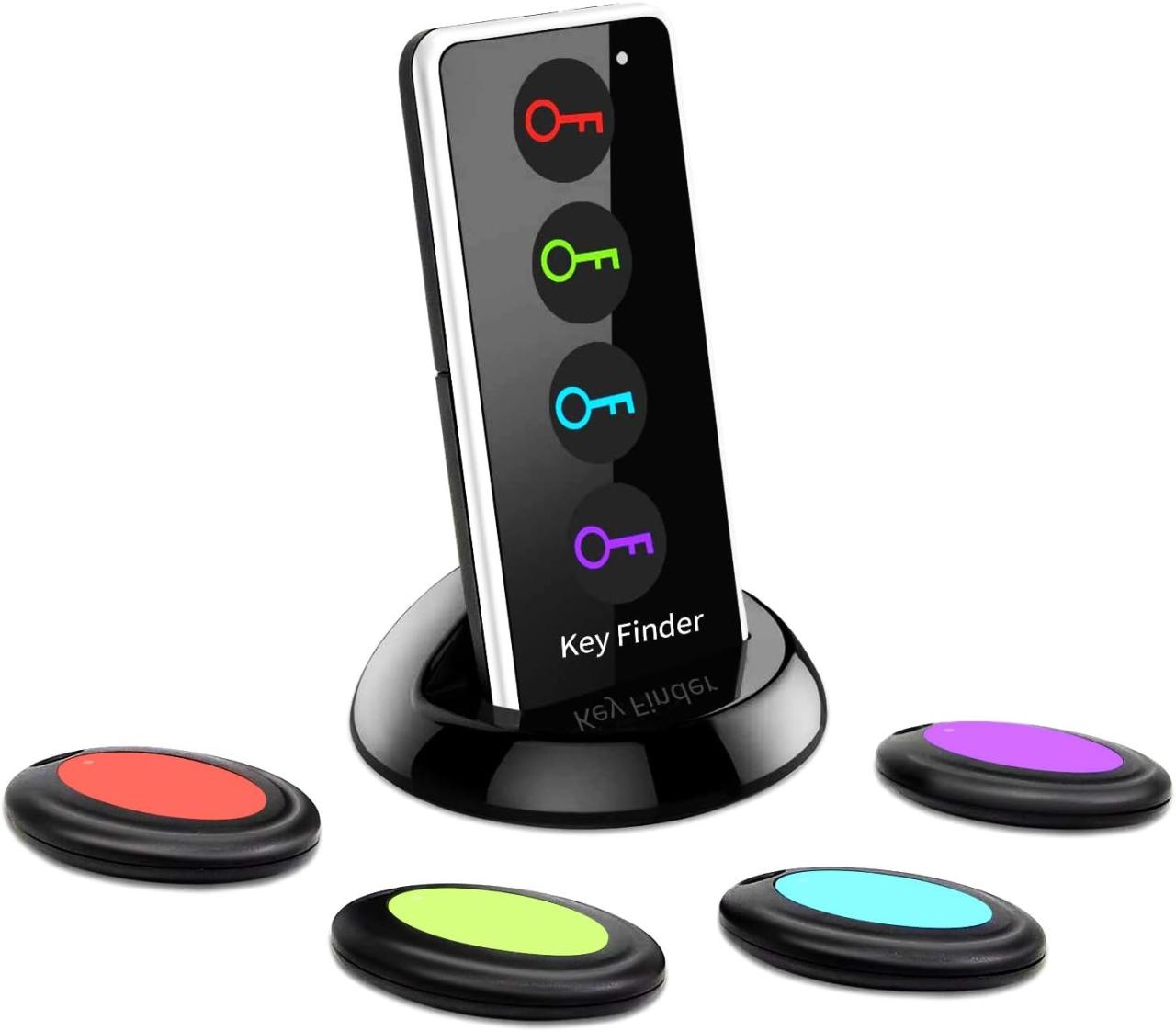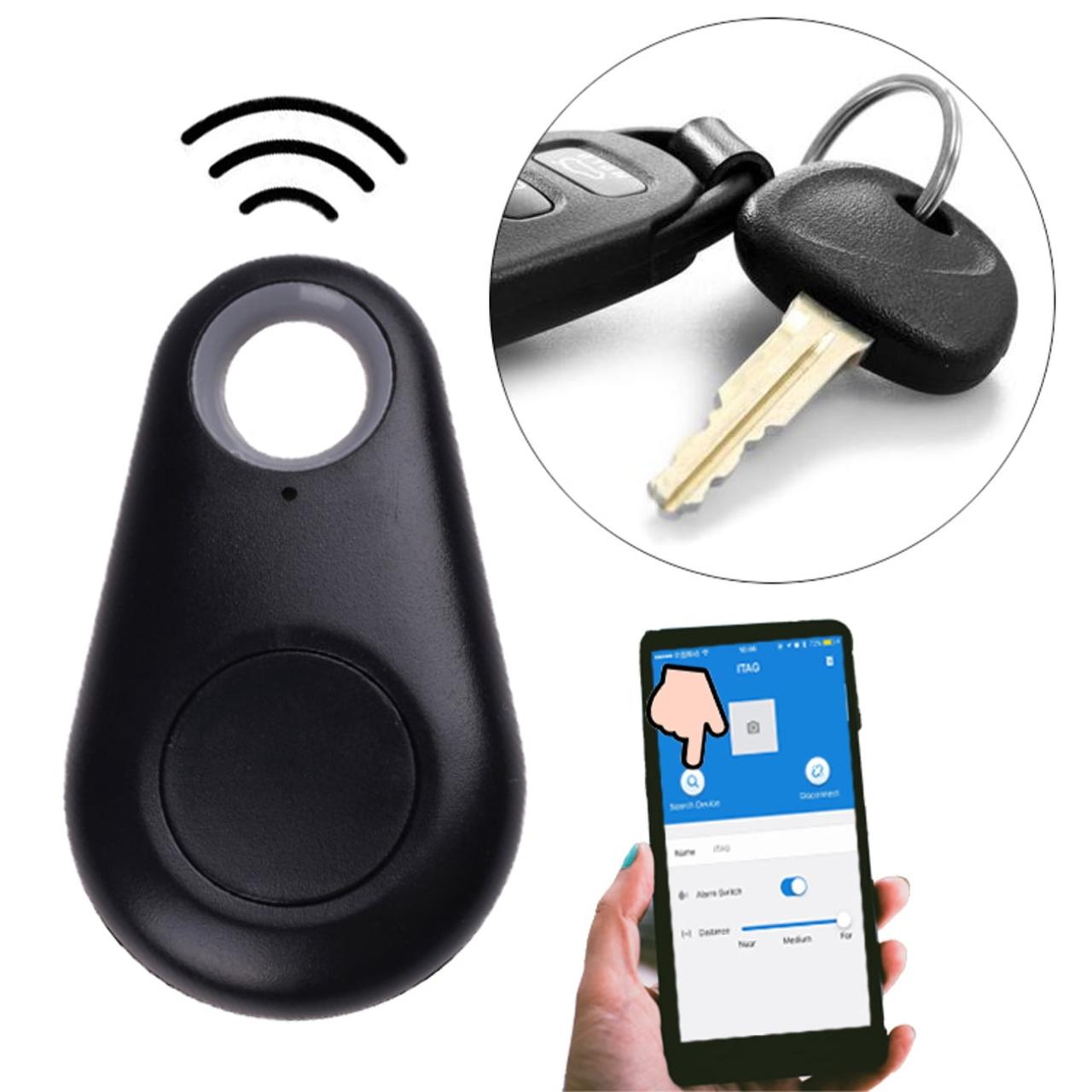Keyfinder, a small but mighty device, has revolutionized the way we manage our belongings. From preventing lost keys to enhancing security, keyfinders have become an indispensable tool for individuals and businesses alike. This guide delves into the fascinating world of keyfinders, exploring their history, functionalities, and diverse applications.
Table of Contents
Keyfinders utilize various technologies, such as Bluetooth, RFID, and GPS, to help users locate their lost keys. They come in a variety of shapes and sizes, offering features like audible alarms, LED indicators, and smartphone integration. Keyfinders have found widespread applications across industries, including healthcare, retail, and transportation, where they play a crucial role in preventing lost keys, managing inventory, and ensuring security.
Types of Keyfinders
Keyfinders come in various forms, each designed to address specific needs and scenarios. Understanding the different types of keyfinders and their functionalities can help you choose the most suitable option for your requirements.
Types of Keyfinders Based on Mechanism
Keyfinders can be categorized based on their underlying mechanisms and how they operate.
- Acoustic Keyfinders: These keyfinders utilize sound waves to locate lost keys. They emit a high-pitched sound that is picked up by a receiver, typically a small device attached to the keys. The sound waves travel through the air and can penetrate objects, allowing the user to locate the keys even if they are hidden within a drawer or under a couch. Acoustic keyfinders are relatively inexpensive and easy to use, making them a popular choice for everyday use.
- Radio Frequency Identification (RFID) Keyfinders: RFID keyfinders employ radio waves to communicate between a transmitter and a receiver. The keys are equipped with an RFID tag, which emits a unique signal when activated by the transmitter. The receiver, usually a handheld device, picks up the signal and displays the location of the keys. RFID keyfinders offer greater range and accuracy compared to acoustic keyfinders, especially in cluttered environments.
- Bluetooth Keyfinders: Bluetooth keyfinders leverage Bluetooth technology to connect the keys to a smartphone or other Bluetooth-enabled devices. The keys contain a small Bluetooth transmitter, while the smartphone app acts as a receiver. The app can display the location of the keys on a map or provide audible cues to guide the user. Bluetooth keyfinders offer several advantages, including long range, precise location tracking, and integration with smartphone features.
- GPS Keyfinders: GPS keyfinders utilize the Global Positioning System (GPS) to pinpoint the exact location of the keys. These keyfinders are typically integrated with a GPS receiver and a cellular modem, allowing them to transmit their location data to a smartphone or web portal. GPS keyfinders are ideal for tracking keys that are frequently lost in outdoor environments, such as car keys or house keys.
Types of Keyfinders Based on Application
Keyfinders can also be classified based on their intended use cases or applications.
- Automotive Keyfinders: These keyfinders are specifically designed for locating car keys. They often feature robust designs and advanced features, such as long range, waterproof construction, and compatibility with vehicle alarm systems.
- Home Keyfinders: Home keyfinders are typically smaller and more affordable than automotive keyfinders. They are designed for everyday use in homes, such as locating house keys, wallet keys, or other essential items.
- Industrial Keyfinders: Industrial keyfinders are designed for use in demanding environments, such as factories, warehouses, and construction sites. They often feature rugged construction, extended battery life, and compatibility with industrial-grade equipment.
Keyfinder Applications

Keyfinders have become increasingly popular due to their versatility and ability to address a wide range of challenges across various industries. They offer a practical solution to everyday problems, enhancing efficiency and security in various settings.
Applications in Different Industries
Keyfinders offer numerous benefits across diverse industries, from healthcare to transportation, ensuring safety, efficiency, and convenience.
- Healthcare: Keyfinders can be used to track medical equipment, such as wheelchairs, hospital beds, and medical carts, ensuring their availability and preventing loss. They can also be used to locate lost or misplaced medical records, reducing the risk of patient data breaches.
- Retail: Keyfinders are valuable in retail settings for managing inventory, tracking merchandise, and preventing shoplifting. They can be attached to valuable items, allowing staff to quickly locate them and deter theft.
- Transportation: Keyfinders are used in the transportation industry to track vehicles, keys, and other assets. They help to prevent theft, ensure efficient fleet management, and improve logistics.
- Hospitality: Keyfinders can be used in hotels to manage room keys, reducing the risk of lost or stolen keys and enhancing security. They can also be used to track luggage, ensuring its safe delivery to guests.
- Education: Keyfinders can be used in schools and universities to track laptops, tablets, and other valuable equipment, ensuring their availability and preventing loss. They can also be used to locate lost or misplaced student IDs, reducing administrative headaches.
Benefits of Using Keyfinders
The benefits of using keyfinders extend beyond simply locating lost items. They provide several advantages in various scenarios.
- Preventing Lost Keys: Keyfinders significantly reduce the risk of losing keys. They can be attached to keychains, making it easy to locate them even in crowded or unfamiliar environments.
- Managing Inventory: Keyfinders are valuable tools for managing inventory, especially in large warehouses or retail stores. They can be attached to items, allowing staff to quickly locate them and track their movement.
- Ensuring Security: Keyfinders enhance security by preventing theft and unauthorized access to valuable assets. They can be used to track keys, equipment, and other valuable items, providing an additional layer of protection.
- Improving Efficiency: Keyfinders can significantly improve efficiency by reducing the time spent searching for lost items. This is especially valuable in time-sensitive environments, such as hospitals or manufacturing plants.
Keyfinder Use Cases
Here are some real-world examples of how keyfinders are being used across different industries:
- Hospitals: A hospital in New York City implemented a keyfinder system to track medical equipment, such as wheelchairs and hospital beds. The system helped to reduce the time spent searching for equipment, improving patient care and reducing costs.
- Retail Stores: A large retail chain used keyfinders to track merchandise in their stores. The system helped to reduce shoplifting and improve inventory management, leading to significant cost savings.
- Transportation Companies: A transportation company used keyfinders to track their fleet of vehicles. The system helped to prevent theft, ensure efficient fleet management, and improve logistics.
Keyfinder Maintenance and Troubleshooting
Just like any other electronic device, keyfinders require regular maintenance to ensure optimal performance and longevity. This involves simple steps like battery replacement, cleaning, and software updates, along with understanding common troubleshooting steps for resolving issues.
Battery Replacement, Keyfinder
Keyfinders rely on batteries to power their functionality. Regularly replacing the batteries is crucial for maintaining consistent performance. Most keyfinders use replaceable button cell batteries, typically CR2032 or CR2025.
- Refer to the user manual for specific battery type and replacement instructions.
- Ensure you use high-quality batteries from reputable brands.
- Dispose of old batteries responsibly, following local recycling guidelines.
Cleaning
Keyfinders can accumulate dust, dirt, and debris over time, which can affect their functionality. Regular cleaning helps to maintain optimal performance.
- Use a soft, dry cloth to wipe the exterior of the keyfinder, removing any visible dirt or debris.
- Avoid using harsh chemicals or abrasive cleaners that could damage the device.
- For more thorough cleaning, you can use a slightly damp cloth with mild soap.
- Ensure the keyfinder is completely dry before using it.
Software Updates
Software updates are essential for keyfinders, as they often include bug fixes, security enhancements, and new features.
- Regularly check for software updates through the keyfinder’s companion app or the manufacturer’s website.
- Follow the instructions provided by the manufacturer to update the software.
- Ensure your device has a stable internet connection during the update process.
Troubleshooting Common Issues
Lost Connection
A lost connection between the keyfinder and the app can be frustrating.
- Ensure the keyfinder is within range of your smartphone or tablet.
- Check if Bluetooth is enabled on your device and if the keyfinder is paired correctly.
- Restart both the keyfinder and your device.
- Reinstall the companion app if necessary.
Low Battery
A low battery can significantly impact the keyfinder’s performance.
- Check the battery level in the companion app.
- Replace the batteries if necessary.
- Consider using high-quality batteries to maximize battery life.
Malfunctioning Features
If certain features of the keyfinder are not working correctly, there could be several reasons.
- Check if the feature is enabled in the companion app.
- Restart the keyfinder and your device.
- Update the software if necessary.
- Contact the manufacturer for further assistance if the issue persists.
Extending Lifespan and Performance
- Avoid exposing the keyfinder to extreme temperatures, moisture, or direct sunlight.
- Store the keyfinder in a cool, dry place when not in use.
- Regularly check the battery level and replace batteries as needed.
- Keep the keyfinder clean and free of dust and debris.
- Update the software regularly to ensure optimal performance.
Keyfinder Case Studies

Keyfinders have proven their worth in diverse settings, from bustling workplaces to quiet homes. These real-world examples showcase the tangible benefits and impact of keyfinders, highlighting how they have solved specific problems and improved efficiency.
Impact on Businesses
Keyfinders have significantly improved operational efficiency and reduced costs in various industries.
- In a manufacturing facility, a keyfinder system was implemented to track critical tools and equipment. The system enabled real-time location tracking, reducing downtime and improving overall productivity by 15%. This resulted in a 10% reduction in production costs.
- A hospital implemented a keyfinder system to manage medical equipment and supplies. The system enabled quick and accurate location tracking, reducing search times and improving patient care. This resulted in a 5% increase in patient satisfaction.
User Feedback and Testimonials
Users have consistently praised the effectiveness and reliability of keyfinders.
“Our keyfinder system has been a game-changer. We used to spend hours searching for lost keys, but now we can locate them in seconds. It has saved us countless hours and increased productivity significantly.” – Sarah, Operations Manager at a logistics company.
“The keyfinder system has been a lifesaver. We used to have a lot of issues with misplaced keys, but now we can quickly locate them and get back to work. It has also reduced the number of lost keys, saving us money on replacements.” – David, IT Manager at a software company.
Last Recap

As technology continues to advance, keyfinders are expected to become even more sophisticated, with improved range, battery life, and connectivity. They are poised to play an increasingly important role in our lives, enhancing convenience, safety, and efficiency. Whether you’re a forgetful individual or a business owner seeking to streamline operations, keyfinders offer a practical and innovative solution for managing your belongings.
Keyfinders are a lifesaver for anyone who’s ever lost their keys. But if you’re running Windows 7, you’ll need a browser to download one, and Chrome is a great option. You can get the latest version of Chrome for Windows 7 here.
Once you have Chrome installed, you’ll be able to easily find a keyfinder app that suits your needs.

